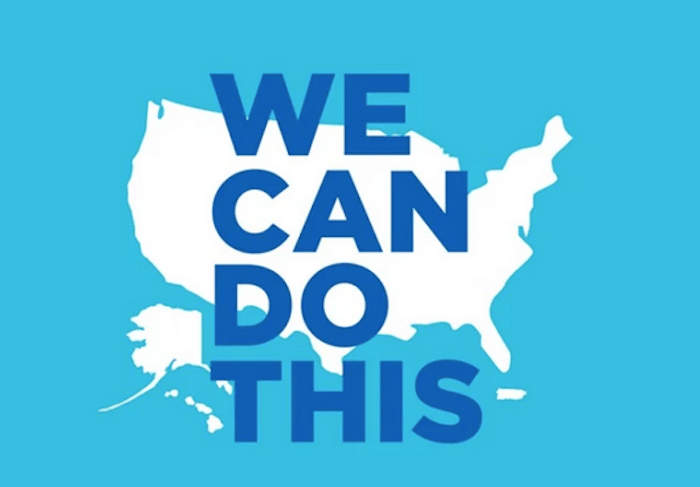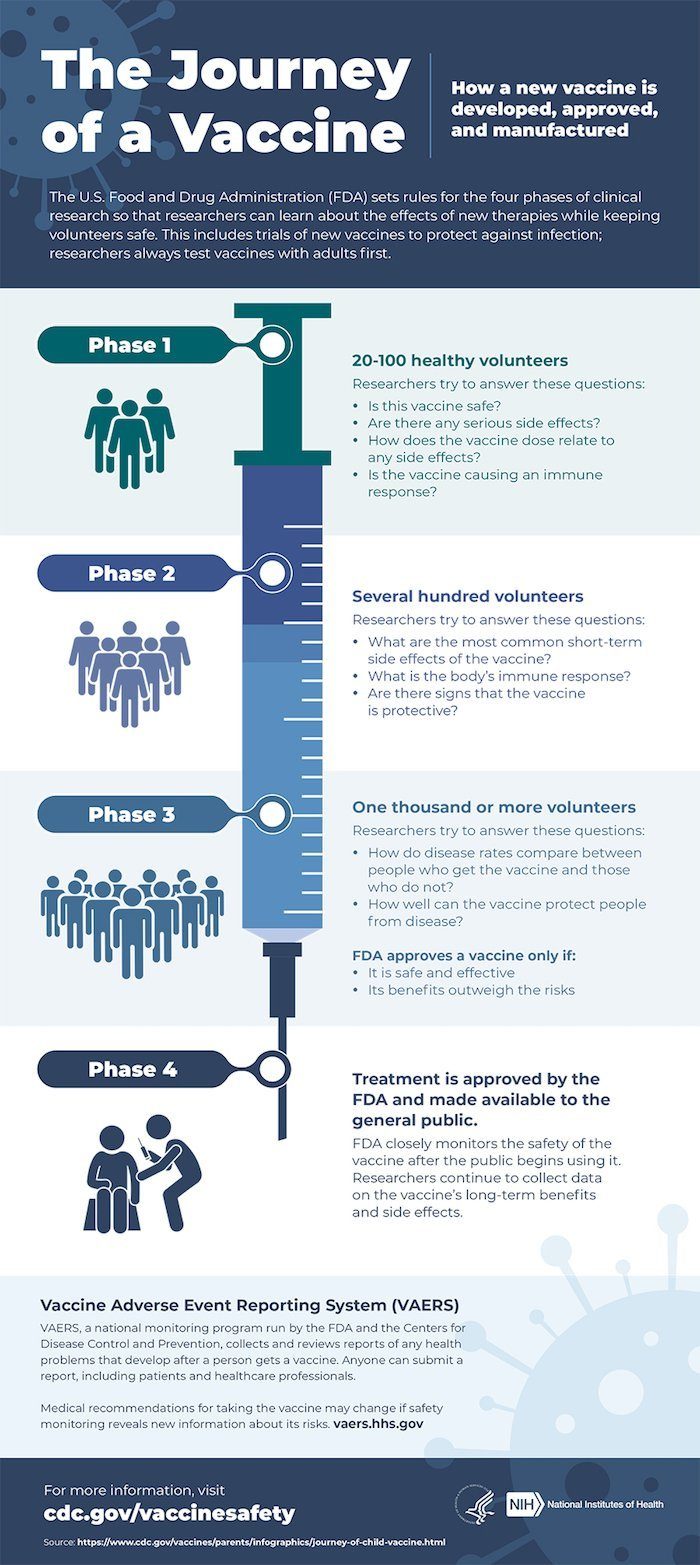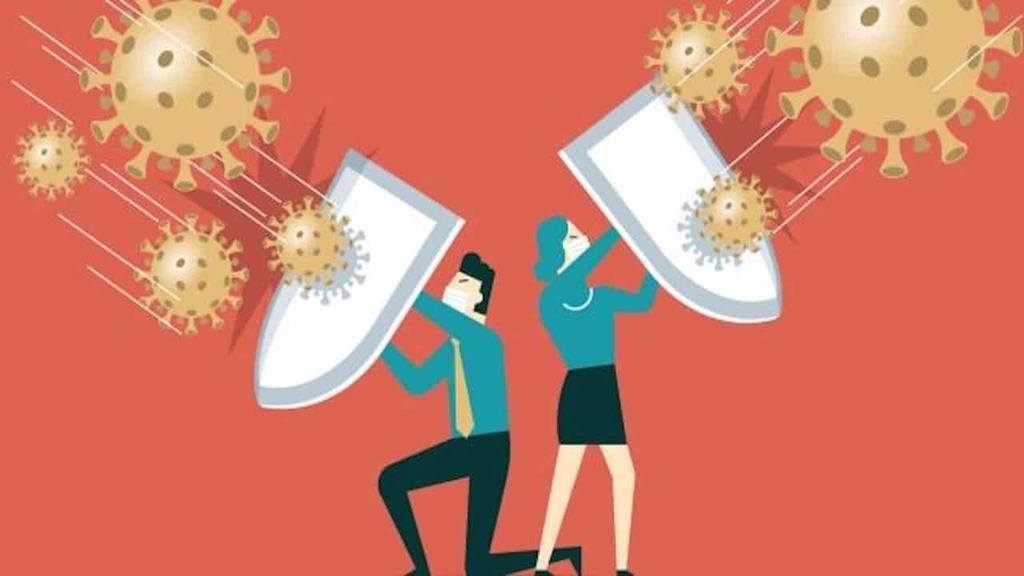Why A Covid Vaccine Awareness Campaign Was Launched
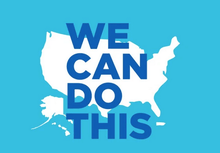
President Biden’s Covid vaccine awareness campaign is doing its best to prove the safety and effectiveness of the vaccines, but will this message fall on deaf ears? Millions of Americans say they won’t get vaccinated.
A Covid vaccine awareness campaign called We Can Do This was just launched by the Biden administration to address a substantial number of Americans who do not intend to get a COVID-19 vaccination.
Read on to learn the key messages of the vaccination campaign, and what you can do to stay safe if you elect not to get vaccinated.
The Covid Vaccine Awareness Campaign
The We Can Do This effort includes a coalition of community, religious and celebrity partners to promote COVID-19 shots in communities hard-hit by the virus, and where resistance to vaccination is high.
We Can Do This features television and social media ads, but it also relies on a community of public health, athletic, faith and other groups to spread the word about the safety and efficacy of the three approved vaccines.
This Covid vaccine awareness campaign campaign has been hastily put together to address the concerns that millions of Americans have about the vaccines. The government rightly worries that the reluctance to get vaccinated by so many people will delay the nation’s recovery from the coronavirus pandemic, particularly as a potentially more lethal variant of the virus propagates.
If you’re dead set against vaccination and nothing will change your mind, skip to what can help protect you.
Should You Get Vaccinated?
From everything I’ve read, yes you should get vaccinated; and in fact I got my second and last Moderna vaccine yesterday.
Other than for religious reasons that are beyond my ken, vaccine hesitancy seems to distill down to three primary concerns that might thwart the success of the Covid vaccine awareness campaign:
- Are the COVID-19 vaccines effective?
- Are the COVID-19 vaccines safe?
- How can I trust vaccines that were developed so quickly?
To address these concerns, let’s rely on the excellent public outreach that John Hopkins Medicine and the Associated Press has provided throughout this pandemic.
1. Are the COVID-19 vaccines effective?
The Associated Press report that Pfizer and Moderna are about 95% effective in preventing COVID-19, and the single-shot Johnson & Johnson vaccine has a 66% efficacy rate, which seems low, but is relatively impressive in comparison to other types of vaccines. For example, efficacy rates for the flu vaccine have been as low as 19%, depending on the variant being spread during a particular flu season.
2. Are the COVID-19 vaccines safe?
To address vaccine safety, let’s rely on the expertise of Lisa Maragakis, M.D., M.P.H., senior director of infection prevention, and Gabor Kelen, M.D., director of the Johns Hopkins Office of Critical Event Preparedness and Response.
In a word, yes, the COVID-19 vaccines are safe.
Research on the vaccines for COVID-19 have a very good safety profile. They’ve been tested in large clinical trials. Data from the manufactures show that the known and potential harms of becoming infected with the coronavirus disease 2019 (COVID 19) outweigh the potential safety risks of the vaccines.
There is some concern, however, for those with severe allergies. According to the CDC, anyone who has a severe allergy (e.g., anaphylaxis) to any of the Pfizer vaccine ingredients should not receive this vaccine. So, if you have allergies, you need to divulge this to your medical practitioner no matter which vaccine is available to you.
Side effects can happen. Side effects are signs that your immune system is responding and preparing to fight the coronavirus if you catch it, and may last two days. If symptoms persist, you call your doctor. As of January 21, 2021, more than two million people reported their symptoms at least once on the CDC’s v-safe after vaccine health checker. Up to 70% of those people reported pain in their arm. About one-third felt more tired than usual, and a little less than a third reported a headache. Chills or fever were noted by about 11% of people in the study, with 10.4% reporting joint pain, and 8.9%, nausea.
So far for me, I notice some soreness the arm the second Moderna shot was administered today (the day after I got the shot), but I’m experiencing no other effects.
Before we move on to the question of trusting vaccines that were so quickly developed, here are two videos presented by John Hopkins medical doctors that briefly address vaccine safety/effectiveness and demographics.
How Do We Know a COVID-19 Vaccine Will Be Safe and Effective?
That video was published on YouTube on December 20, 2020. Since then much more data has attested to the efficacy and safety of the vaccines.
Demographics of the COVID-19 Vaccine Trials
In the next video, Dr. Sherita Hill Golden addresses the demographic makeup of those tested in the vaccine trials.
3. How can I trust vaccines that were developed so quickly?
Yes, the coronavirus vaccines were developed more quickly than other vaccines in the past, but they have been carefully tested and continue to be monitored. Safety has been a top priority as federal agencies work with vaccine manufacturers to develop and authorize a COVID-19 vaccine.
Here are some key areas of COVID-19 vaccine development, review and authorization:
- Careful testing. All vaccines go through clinical trials to test safety and effectiveness. For the COVID-19 vaccine, the Food and Drug Administration (FDA) set up rigorous standards for vaccine developers to meet. The following infographic from the National Institutes of Health shows the four phases a vaccine must go through before it is released to the public:
- Authorization for emergency use. Vaccines that meet FDA safety and effectiveness standards can be made available in the United States by approval or by emergency use authorization (EUA). An EUA provides temporary authorization of a vaccine or medication under emergency situations, such as the coronavirus pandemic.
- Continuous monitoring for problems and side effects. Once a vaccine is authorized for use, monitoring continues, with systems in place to track problems or side effects that were not detected during the clinical trials. For the COVID-19 vaccine, the FDA and the Centers for Disease Control and Prevention (CDC) are expanding their vaccine monitoring. If there are problems with the vaccine, they are most likely to emerge early in the testing process when they can be identified and addressed.
(You can learn more from the CDC about the safety steps in place for the COVID-19 vaccine.)
Thus, the speedy development of the vaccines did not impede safety measures. There are several reasons why the COVID-19 vaccines were developed faster than other vaccines:
- The mRNA technology used to develop the COVID-19 vaccines has been years in development to prepare for outbreaks of infectious viruses. Thus, the manufacturing process was ready very early in the pandemic.
- China shared genetic information about the SARS-CoV-2 coronavirus when it was available, which gave vaccine developers an early start at finding a vaccine.
- The testing processes for the vaccines didn’t skip any steps, but the vaccine developers conducted some stages of the process simultaneously to gather as much data as quickly as possible.
- Governments gave money to vaccine developers in advance, so the companies had resources they needed.
- Some types of COVID-19 vaccines were created using messenger RNA (mRNA), a new technology that allows a faster approach than the traditional way vaccines are made.
- Companies began manufacturing vaccines ahead of their authorization or approval so some supplies would be ready if authorization occurred.
4. Can the vaccine change my DNA?
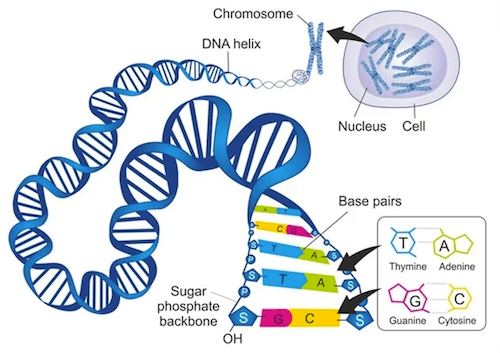
DNA illustration shows the structure of double-stranded deoxyribonucleic acid (DNA) with base-pairs cytosine – guanine and thymine – adenine. Image Credit: Soleil Nordic / Shutterstock
No, the Covid vaccine cannot alter your DNA.
Perhaps due to a misunderstanding of a component of the vaccines called “messenger RNA” (mRNA), there’s a rumor hopping around that asserts that the COVID-19 vaccine can change your DNA. As you may have noted, mRNA was mentioned in the bullet points above, so let’s address it.
Some COVID-19 vaccines were created using a new technique called messenger RNA, or mRNA. This technique isn’t new. Scientists have been working on it for years prior to the pandemic. The arrival of the new coronavirus provided vaccine manufacturers a chance to use it.
Traditional approaches to vaccines have used dead or weakened versions of the virus itself, which when injected into the body enables the immune system to learn to identify and develop immunity to it. Although effective, making new vaccines this way can take years.
The mRNA approach works differently. When a virus such as SARS-CoV-2 (the virus that causes COVID-19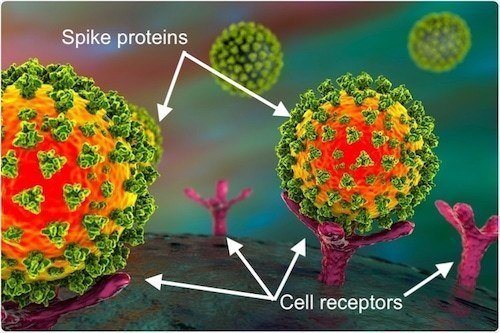 health issues) enters the body, it acts like a photocopy machine to reproduces itself. These copies of the virus invade other cells. The mRNA coronavirus vaccines cause the body to produce copies of just one part of the coronavirus, which is the spike proteins on its surface that give the virus its telltale appearance. The spike protein helps the virus attach to cells and make people sick, but by itself, cannot cause COVID-19.
health issues) enters the body, it acts like a photocopy machine to reproduces itself. These copies of the virus invade other cells. The mRNA coronavirus vaccines cause the body to produce copies of just one part of the coronavirus, which is the spike proteins on its surface that give the virus its telltale appearance. The spike protein helps the virus attach to cells and make people sick, but by itself, cannot cause COVID-19.
The new mRNA vaccines for the coronavirus contain “instructions” for how to make copies of the spike protein. The mRNA is synthetically made in a lab (meaning it is not taken from the virus directly). Once injected, it goes into cells where the mRNA instructs the cell to make copies of the coronavirus’s spike proteins. (A virus can not reproduce by itself.) When the cell releases these proteins, the immune system identifies them as foreign pathogens and destroys them, but not before making antibodies to detect and react to the protein and the virus (SARS-CoV-2) that causes COVID-19. Then, afterwards, should a live, intact coronavirus enter someone’s body that has been vaccinated with the mRNA vaccine, the immune system “remembers” the spike protein and attacks the coronavirus so it cannot reproduce, making someone sick with COVID-19.
Not only are they quicker to develop, but vaccines created with mRNA may be even better at protecting people from disease than those made with dead or weakened viruses.
What about the DNA question?
Simply put, the mRNA in the COVID-19 vaccines can not alter your DNA, because it does not enter the nucleus of your cells, where resides your DNA.
DNA (deoxyribonucleic acid), is the hereditary material found in the cells of humans and almost all other organisms, including viruses. It’s purpose is to provide the genetic instructions for the development, functioning, growth and reproduction.
The instructions that DNA represents are for making proteins. Proteins are the building blocks of life and help to make other building blocks, such as carbohydrates or lipid (fat) structures. These DNA instructions are preserved
Think of DNA as an ancient book containing all the information of life. Such a precious document must be preserved at all costs, so there should be no careless flipping of its pages. RNAs are like photocopies of pages from the ancient book of DNA. The cell doesn’t need to worry about damage to the copies, since the original is intact.
RNA (ribonucleic acid) is involved in the transcription, decoding, and translation of the genetic code to produce the proteins per the DNA instructions, and in so doing play a major role in protein synthesis.
So, in effect, DNA holds the instructions for the genetic blueprint, and RNA copies and makes the proteins as instructed by the DNA.
mRNA (messenger RNA) is one of the “big three” types of RNA, and it’s a small photocopy of the DNA that holds the protein-making blueprint. mRNA is synthesized through a process called transcription. It’s the messenger between the DNA and the biomachines that make the proteins—ribosomes.
Anyway, the point is: Thee COVID-19 vaccines can not affect your DNA or change your genes.
Not Getting Vaccinated? You Need A Plan To Stay Safe
Despite whatever good things the Covid vaccine awareness campaign has to say about the vaccines, you may not be convinced.
And so you need a plan.
Let me back up… When this pandemic happened (well before the vaccines were available), I spent several months researching how we could protect ourselves from getting infected with the virus, but if infected and having COVID-19 symptoms, how to minimize them.
This effort produced a course called Covid Immunity.
Now, despite the availability of vaccines and the data attesting to their safety and efficacy, there are millions of people who do not intend to get vaccinated.
If that’s you or someone you know, you need a plan to stay safe. And so now Covid Immunity has shifted from a plan on how to keep safe till the vaccines arrive to a blueprint on how to protect yourself should you decide not to get vaccinated.
If you don’t intend to get vaccinated, I encourage you to either:
- Get my free 3 Strategies To Beat COVID-19 (see sign-up below); or
- Enroll in the Covid Immunity Course.
If you’re not going to get vaccinated, you and your family need a plan to stay safe.
Last Updated on February 28, 2022 by Joe Garma

